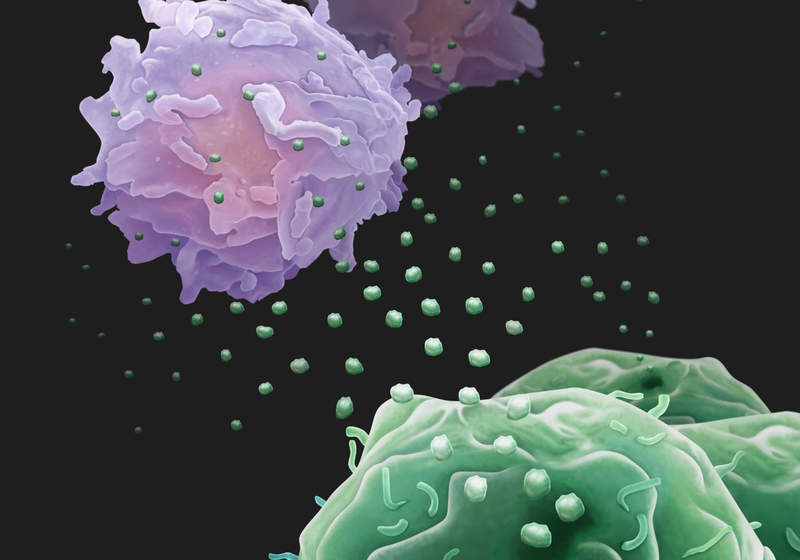
A team of researchers from the University of Pennsylvania in the US have discovered that cancer cells release biological ‘drones’ to fight the immune system from afar.
These small vesicles called exosomes circulate in the blood and are armed with the protein PD-L1. The release causes T-cells to tire before they can reach the tumour and fight.
The latest work is a collaboration between Wei Guo of Penn’s School of Arts and Sciences and Xiaowei Xu of the Perelman School of Medicine. With primary focus on metastatic melanoma, the team found that breast and lung cancer also release the PD-L1-carrying exosomes.
The research highlights a new method to predict how cancer patients will respond to certain checkpoint inhibitor drugs that disrupt immune suppression to fight tumours.
Biology professor Guo said: “Immunotherapies are life-saving for many patients with metastatic melanoma, but about 70% of these patients don’t respond.
“Identifying a biomarker in the bloodstream could potentially help make early predictions about which patients will respond and, later on, could offer patients and their doctors a way to monitor how well their treatment is working.”

US Tariffs are shifting - will you react or anticipate?
Don’t let policy changes catch you off guard. Stay proactive with real-time data and expert analysis.
By GlobalDataThe researchers collected blood samples from melanoma patients treated with anti-PD1 checkpoint inhibitor therapy to monitor tumour-related immune suppression with time.
As part of the research, Guo, Xu and colleagues found that exosomes from human melanoma cells also carried PD-L1 on their surface.
Identifying the exosomal PD-L1 secreted by tumour cells provides a major update to the immune checkpoint mechanism, offering new insight into tumour immune evasion.
The research found that a single tumour cell can secrete many copies of exosomes and the interaction between the PD-L1 exosomes and T cells provides a systemic means to suppress anti-tumor immunity in the whole body. This would help explain why cancer patients have weakened immune systems.
Oncologists can measure pre-treatment levels of PD-L1 and will be able to predict the extent of tumour burden in a patient and associate that with treatment outcome.
Guo further added: “In the future, I think we will begin to think about cancers as a chronic disease, like diabetes.”



